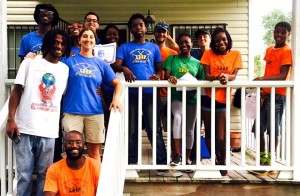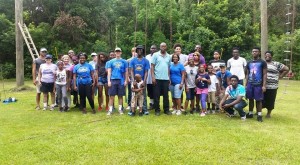The Center for Restorative Approaches’ mission is to “nurture our humanity; one person, one community, one circle at a time.”
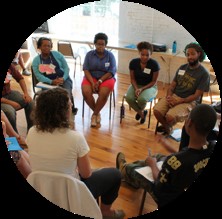
The CRA was founded in 2008, as a part of Neighborhood Housing Services, a non-profit that believes in empowering the community through making ties to organizations and restoring pride and confidence in the New Orleans Neighborhood. The Neighborhood Housing Services sponsors organizations that they believe will provide positive results effectively, and foster environments that are built with honesty and respect; qualities that the CRA pursues at every level of their work. In 2013, the CRA moved to the fiscal sponsorship of the GoodWork Network, which provides business development services to minority groups throughout Louisiana. From there, the organization has achieved and maintained their goal of helping people to uncover their “natural ability to respond to destructive behavior in constructive ways” through grants and volunteered time and resources.
The Center for Restorative Approaches (CRA) works to provide the New Orleans community, primarily school environments, but also neighborhoods and community centers (wherever they receive referrals) with the tools, training, and resources to build productive and stable relationships. The goal is to decrease the amount of violence, crime, and conflict New Orleans has seen and struggled with for so long. As opposed to destructive communication techniques, the organization fosters the ability within members of the community to develop their own solutions and ways of correcting harm that isn’t detrimental to families, friends, and the community as a whole. In short, the CRA teaches alternatives to undesirable actions, and addresses some of the most concerning issues that surround the youth of this city.
One of the things I find to be the most important aspect of the CRA is that it is truly not an invasive organization and is incredibly respectful and conscious about the way it handles its work. They also network within the community so that those who have been through the CRA’s training can meet with members of their own community to help assist in the resolution, not an outside representative, which I think really encourages the success of the organization and its message, especially within the New Orleans community where most of the outreach is being done with young, low-income, African American youth. When the CRA is called in to help resolve a conflict, every aspect and step they take is in collaboration with those who have been affected, and their goal is to help them come to a solution or a resolution, not to provide it. The restorative methods allow for people to listen, to be heard, and to work out the conflict in the healthiest way possible. Restorative Approaches are a philosophy sprouting from Restorative Justice, and are “processes and strategies used in workplaces, schools, organizations, and the justice system to help repair harm and build or strengthen relationships. These processes focus on helping people to cooperate, to take responsibility for personal actions, and to resolve conflict.” The CRA discourages doing anything “to or for people; instead, we should do things with people”. It also provides a new outlook on conflict, as it is seen as an opportunity for relationship strengthening and repair. The CRA teaches people to recognize that the differences we have can be harnessed and used to build a community into one vibrant and lively and prosperous one, as opposed to being destructive and harmful towards one another for pride, money, attention, or any reason.
The actual services provided by the CRA depends upon the situation, but they range from preventative conflict resolution to intervention. A huge goal of the organization is to reduce suspension rates within schools, because 43% of students who entered high school with 3 suspensions on their record end up dropping out” (School of Education at Johns Hopkins), and 1 in 10 males who drop out of high school end up incarcerated. So the CRA is trying to stop the school to prison pipeline that is way too common in New Orleans. Sometimes, when the CRA is called in, the student’s willingness to comply and resolve the issue that occurred will stand as an alternative to their suspension, which is great because punishment for doing something bad atschool by being kicked out of school will never foster change in the right direction. One exciting and recent development for the CRA is that is has officially partnered with the City of New Orleans, bringing Restorative Approaches into all Orleans Parish Schools, under Mayor Landrieu’s Nola for Life Initiative and has allowed for more Whole School Approaches, where the entire staff and student body is able to benefit from the information put forth by the CRA, which will be a huge public service to the city of New Orleans .
 The physical bodies of the CRA is a small number. There are 6 permanent staff members, and then interns and volunteers who donate their time to the cause, and can choose to do more behind the scenes work or to be on call for resolutions. The techniques used by the CRA include Solution Circles, which bring individuals who are feeling tension together so as to prevent a crime, conflict, or act of violence. It allows people to talk about what happened, how they were affected and felt, and what they think they can do to move forward. A Community Conference brings together everyone who has been affected by a crime, conflict, or act of violence that has actually occurred, again being listened to and heard, and then attempting to resolve and repair the harm that has been done in the best way possible. The CRA also provides training for those who are interested in facilitating these circles, and the training is open to anyone interested in learning productive communication techniques.
The physical bodies of the CRA is a small number. There are 6 permanent staff members, and then interns and volunteers who donate their time to the cause, and can choose to do more behind the scenes work or to be on call for resolutions. The techniques used by the CRA include Solution Circles, which bring individuals who are feeling tension together so as to prevent a crime, conflict, or act of violence. It allows people to talk about what happened, how they were affected and felt, and what they think they can do to move forward. A Community Conference brings together everyone who has been affected by a crime, conflict, or act of violence that has actually occurred, again being listened to and heard, and then attempting to resolve and repair the harm that has been done in the best way possible. The CRA also provides training for those who are interested in facilitating these circles, and the training is open to anyone interested in learning productive communication techniques.
My work with the CRA has not been in facilitating the conflict resolution circles, but has been rewarding and educational nonetheless. I took on a publishing internship with the CRA, so I have been working on editing and re-orienting the training materials, lessons, and power points that they bring into the schools and actually use during the training for facilitations, the actual facilitations, and the school lessons. Through this, I have gotten very familiar and comfortable with the methods, information, and techniques used by the CRA, and it has connected to both my Linguistics and English majors because the use of language in certain spaces and environments, what is appropriate and what is not, what leads to stigmatizations, what language
causes conflict, etc. is something very stressed by the CRA as they make sure that definitions are clearly understood by all. Furthermore, the actual editing and re-orienting of the materials gives me access to the publishing world, which has always been something I’m potentially interested in pursuing. Additionally, the CRA has a Summer Initiative Training Session coming up, and I have been working on the event planning for that, and will be attending it.
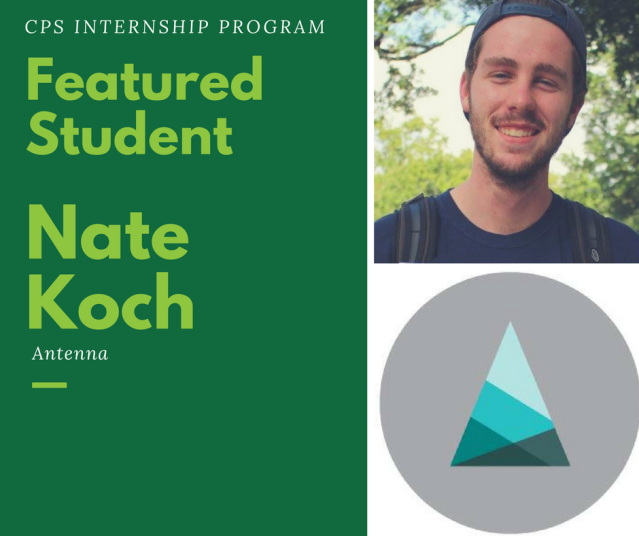

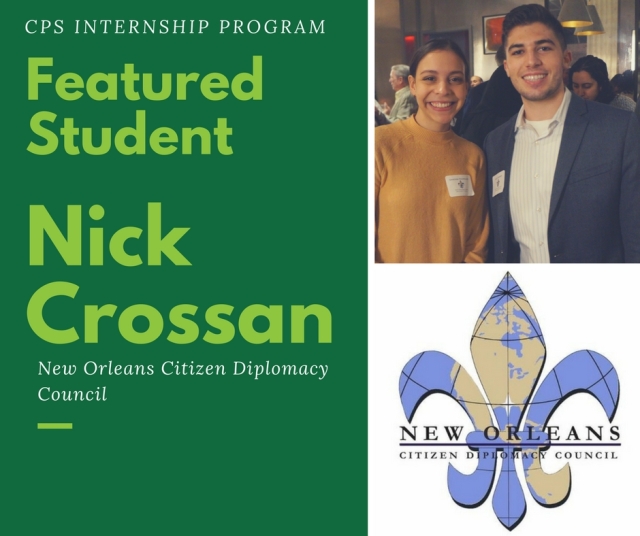
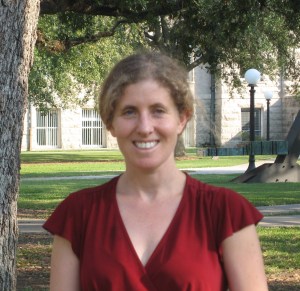
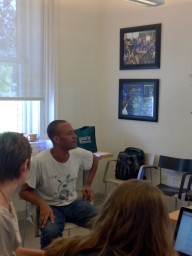
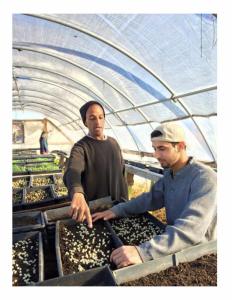
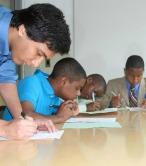
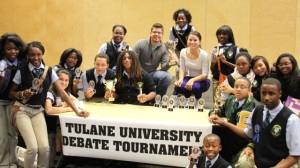
 Though the branch of Top Box Foods I work for is located in New Orleans, the organization actually was founded in Chicago by Chris Kennedy, son of Robert F. Kennedy. The organization launched in May of 2012 after he resigned from the Merchandise Mart located in Chicago. Chris worked in agriculture his whole career. He eventually became president of Merchandise Mart and ran it for 25 years. Many people assumed Kennedy would run for governor after he retired from his job. However, when he made a special announcement after his retirement, he introduced the organization Top Box Foods. Top Box Foods Chicago has been active for three years now. The organization decided to start a branch in New Orleans when Connor Casas, a friend of Chris Kennedy’s son, decided to go to Tulane University. Casas discussed with Chris about how New Orleans would really benefit from an organization like Top Box Foods. Therefore, Top Box Foods New Orleans started in July of 2013. This July, we are celebrating our 2nd anniversary. Since Top Box Foods New Orleans was founded by college students, donors very much so helped to start the organization. The Kennedy family contributed funds and many other wealthy New Orleans residents contributed funds to the starting of Top Box Foods in New Orleans.
Though the branch of Top Box Foods I work for is located in New Orleans, the organization actually was founded in Chicago by Chris Kennedy, son of Robert F. Kennedy. The organization launched in May of 2012 after he resigned from the Merchandise Mart located in Chicago. Chris worked in agriculture his whole career. He eventually became president of Merchandise Mart and ran it for 25 years. Many people assumed Kennedy would run for governor after he retired from his job. However, when he made a special announcement after his retirement, he introduced the organization Top Box Foods. Top Box Foods Chicago has been active for three years now. The organization decided to start a branch in New Orleans when Connor Casas, a friend of Chris Kennedy’s son, decided to go to Tulane University. Casas discussed with Chris about how New Orleans would really benefit from an organization like Top Box Foods. Therefore, Top Box Foods New Orleans started in July of 2013. This July, we are celebrating our 2nd anniversary. Since Top Box Foods New Orleans was founded by college students, donors very much so helped to start the organization. The Kennedy family contributed funds and many other wealthy New Orleans residents contributed funds to the starting of Top Box Foods in New Orleans.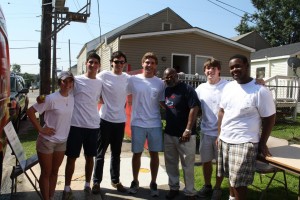

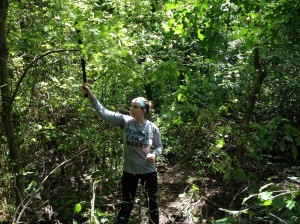

 The physical bodies of the CRA is a small number. There are 6 permanent staff members, and then interns and volunteers who donate their time to the cause, and can choose to do more behind the scenes work or to be on call for resolutions. The techniques used by the CRA include Solution Circles, which bring individuals who are feeling tension together so as to prevent a crime, conflict, or act of violence. It allows people to talk about what happened, how they were affected and felt, and what they think they can do to move forward. A Community Conference brings together everyone who has been affected by a crime, conflict, or act of violence that has actually occurred, again being listened to and heard, and then attempting to resolve and repair the harm that has been done in the best way possible. The CRA also provides training for those who are interested in facilitating these circles, and the training is open to anyone interested in learning productive communication techniques.
The physical bodies of the CRA is a small number. There are 6 permanent staff members, and then interns and volunteers who donate their time to the cause, and can choose to do more behind the scenes work or to be on call for resolutions. The techniques used by the CRA include Solution Circles, which bring individuals who are feeling tension together so as to prevent a crime, conflict, or act of violence. It allows people to talk about what happened, how they were affected and felt, and what they think they can do to move forward. A Community Conference brings together everyone who has been affected by a crime, conflict, or act of violence that has actually occurred, again being listened to and heard, and then attempting to resolve and repair the harm that has been done in the best way possible. The CRA also provides training for those who are interested in facilitating these circles, and the training is open to anyone interested in learning productive communication techniques.